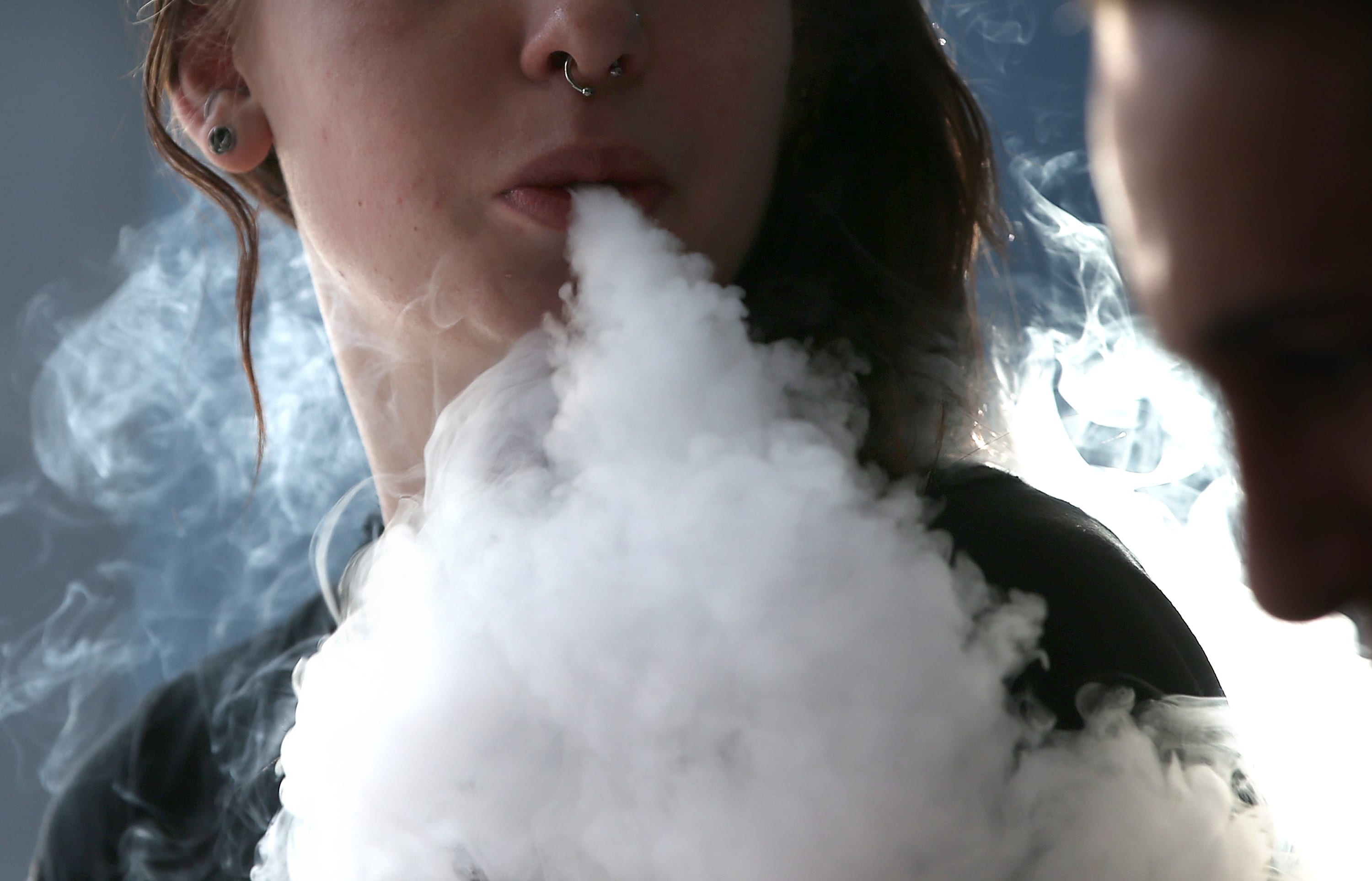For the sake of America’s kids, the Food and Drug Administration cannot reject the reality of today’s youth vaping epidemic.
Last week, FDA approved the first-ever e-cigarettes to stay on the U.S. market, R.J. Reynolds’ Vuse tobacco-flavored vaping device. This comes after years of FDA ignoring its responsibility to regulate e-cigarettes, allowing a tidal wave of products to illegally flood the market. Millions of children in America today have been targeted and hooked by the tobacco and e-cigarette industry as a result of FDA’s inaction.
This recent authorization raises alarms and may pave the way for other addictive products to remain on the market, such as Juul and Puff Bar. That would be a dangerous decision for the future of public health in America. Here’s why.
I’m familiar with Big Tobacco’s playbook. Their business model has been painfully clear for decades: create an addictive product, lie about its health impacts, and target kids with ads. Finally, when the public learns the truth, Big Tobacco tries to reinvent with new, “less harmful,” and “cutting edge” nicotine products. E-cigarettes are the tobacco industry’s latest profit generator. These products — which come in flavors such as Unicorn Poop and gummy bear — have exploded in popularity with children. Prior to the pandemic’s disruption of regular in-person school, more than 5 million children were vaping.
It’s no surprise that old tobacco giants like Altria, the maker of Marlboro cigarettes, have seized this opportunity to addict a new generation of customers by pouring billions of dollars into new e-cigarette companies like Juul. And Vuse, the second most popular brand among high school students, is owned by British American Tobacco’s R.J. Reynolds — the same company that created the cartoon character Joe Camel to market its cigarettes to children years ago.
FDA has characterized youth e-cigarette use as an “epidemic.” So one would imagine that this public health agency would do everything in its power to end this “epidemic.”
By law, e-cigarette companies must demonstrate to the FDA that its products are “appropriate for the protection of public health.” As one of the authors of that statute, I know this is a high bar — requiring FDA to balance the risk of children getting hooked on these products with the potential benefit of adults quitting smoking.
Kid-friendly flavored e-cigarettes have no business being on the market — evidenced by the proven role they play in serving as a deadly path to nicotine for children who never otherwise would have picked up a tobacco product. We have also seen that when the agency takes half-measures and leaves certain kid-friendly flavors like menthol on the market, kids will always gravitate toward those products. So it’s appropriate, and I commend the agency, that FDA’s regulators have rejected every application with a flavored product thus far.
However, I am deeply concerned that FDA is ignoring reality in its evaluation of e-cigarettes. In granting this recent authorization to R.J. Reynolds, FDA downplays the fact that the Vuse brand is now even more popular with children than the now-infamous Juul, and that the product’s nicotine concentration is at a level which is banned in many other countries.
Instead, the FDA is willing to buy into the unproven industry claims that the Vuse e-cigarette will actually help adult smokers quit. It’s also disturbing that, after all these years, FDA still believes that restrictions on advertising will prevent youth use. No tobacco company — and certainly not the minds behind Joe Camel —has been a responsible public steward of its product, so the fact that the FDA placed so much trust in this company to responsibly advertise its product falls flat.
The proof is clear that the industry’s premise is all a smokescreen: 20% of high school students used e-cigarettes in 2020 compared to just 4% of adults. We also know companies like Juul and R.J. Reynolds invested millions in kid-friendly flavors and marketed their products to teens. FDA must recognize that reality as it weighs the decision on Juul and other popular e-cigarette products in the coming days.
This issue is personal. My father smoked two packs of Camels a day and died of lung cancer at age 53. I stood by his bedside at the hospital where he struggled in his final breaths. No kid should ever have to go through something like that. Trust me: if there were a product that could prevent his suffering, I would be all for it. However, e-cigarettes have failed to live up to their claimed health benefits and have created far more problems than they have solved. It’s long past time for FDA to acknowledge that fact.
This is a life-or-death challenge to FDA’s legacy on tobacco. For the health of our kids, the FDA cannot fail.
Sen. Dick Durbin is a Democrat who has represented Illinois since 1997. He serves as Senate Majority Whip, the second highest ranking position among the Senate Democrats. Durbin also is chair of the Senate Judiciary Committee and sits on the Appropriations and Agriculture Committees.
